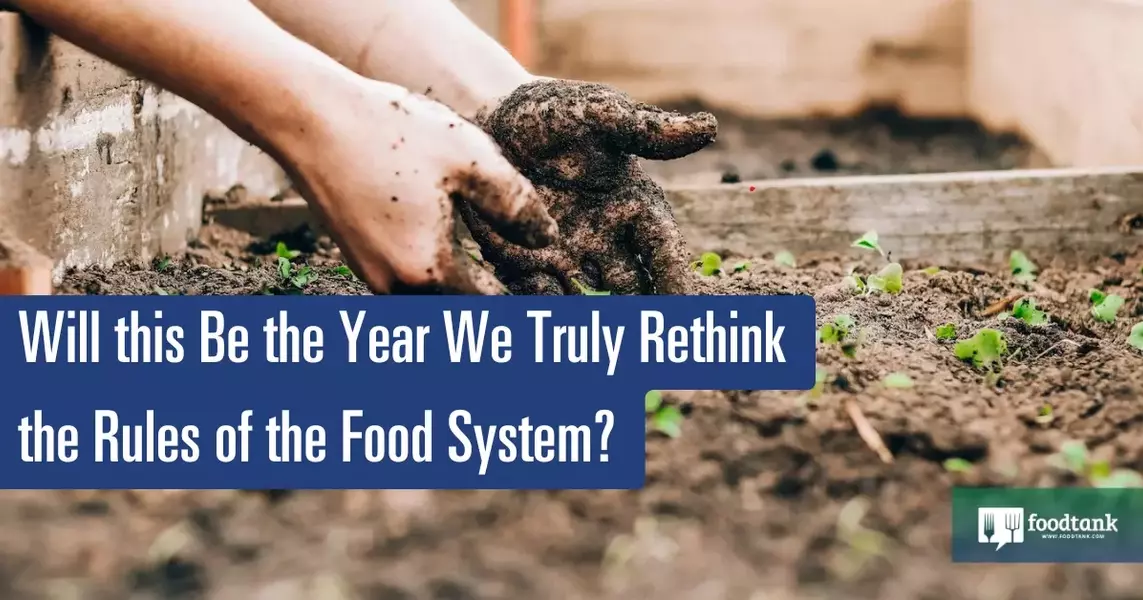Transforming Global Food Systems: A Vision for 2025

Embracing Change: The Path Forward for Food Systems
The year 2025 promises significant shifts in the way we approach food production and consumption. With the world at a crossroads, the choices made today will shape the future of our food systems. As we navigate this period of uncertainty and opportunity, it is crucial to prioritize justice, care, and health in every aspect of the food chain. By fostering innovation and embracing new paradigms, we can build a more resilient and equitable food system that benefits all.
Redefining Consumer Preferences: The Gen Z Revolution
Young consumers, particularly those from Generation Z, are driving unprecedented changes in the food industry. Known for their no-nonsense approach, these individuals demand authenticity and transparency from brands. They value scratch cooking and home-prepared meals but also appreciate the convenience of dining out or indulging in novelty items. For Gen Z, the experience of eating goes beyond mere sustenance; it's about exploring diverse flavors and supporting sustainable practices. This shift in consumer behavior is compelling food companies to rethink their strategies and adapt to the changing market dynamics.
Gen Z’s discerning palate and commitment to ethical consumption are reshaping the industry. Their preference for pasture-raised eggs and freeze-dried snacks reflects a desire for both quality and enjoyment. This generation’s influence extends beyond individual choices, pushing companies to adopt more transparent and environmentally friendly practices. In response, many businesses are investing in sustainable sourcing and innovative products that align with Gen Z’s values, ensuring they remain relevant in an increasingly competitive landscape.
Agricultural Innovation: A New Era of Farming
The agricultural sector is undergoing a profound transformation as technology and policy converge to address pressing challenges. Advances in mechanization promise to revolutionize farming practices, potentially altering the very taste of crops. While this presents opportunities for increased efficiency, it also raises concerns about the impact on farmworkers. Ensuring the protection and fair treatment of these essential workers is paramount as we move toward a more automated future. The intersection of technology and labor rights will define the trajectory of agriculture in the years to come.
Innovations in agroecology offer a promising alternative to conventional farming methods. By placing agroecological farms at the center of the food system, we can foster resilience and sustainability. Agroecological practices not only enhance biodiversity and soil health but also promote social equity by empowering small-scale farmers. These farms serve as models for a more holistic approach to agriculture, addressing climate change, hunger, and poverty while preserving cultural heritage. As we look to the future, prioritizing agroecology could be the key to building a thriving and just food system.
Advocating for Worker Justice: A Call to Action
The well-being of food system workers must be a top priority as we reimagine the future of agriculture. Across the country, working people face mounting challenges, from low wages to rising costs of living. Addressing these issues requires a concerted effort to elevate the voices of those who toil in the fields and kitchens. Advocates like Saru Jayaraman emphasize the urgent need to raise wages, end sub-minimum pay for tipped workers, and extend protections to farmworkers. By championing worker justice, we can create a food system that values and respects the contributions of every individual involved in bringing food from farm to table.
Worker justice is not just a moral imperative; it is essential for the stability and success of the entire food system. When workers are treated fairly and compensated adequately, they can thrive and contribute more effectively to the industry. This, in turn, leads to higher-quality products and greater overall productivity. As we move forward, it is crucial to implement policies that ensure fair wages, safe working conditions, and equal opportunities for all food system workers. By doing so, we can build a more inclusive and equitable industry that benefits everyone involved.
Celebrating Indigenous Wisdom: A Return to Traditional Crops
The wisdom of indigenous communities holds invaluable lessons for modern agriculture. For millennia, indigenous peoples have cultivated crops that are perfectly adapted to their local environments. These place-based crops, grown using traditional methods, offer a sustainable and nutritious alternative to industrial farming. In 2025, there is a growing recognition of the importance of preserving and promoting these indigenous foods. By reintroducing native crops and honoring the knowledge of indigenous farmers, we can strengthen food security and biodiversity while respecting cultural heritage.
Michael Kotutwa Johnson, a member of the Hopi Tribe, highlights the significance of indigenous crops in maintaining healthy communities. These crops, which have sustained indigenous populations for generations, are rich in nutrients and well-suited to local climates. By supporting the cultivation of these crops, we can address the unique nutritional needs of indigenous communities and contribute to the broader goal of ending hunger and poverty. Furthermore, embracing indigenous agricultural practices fosters a deeper connection to the land and promotes environmental stewardship, ensuring a sustainable future for all.